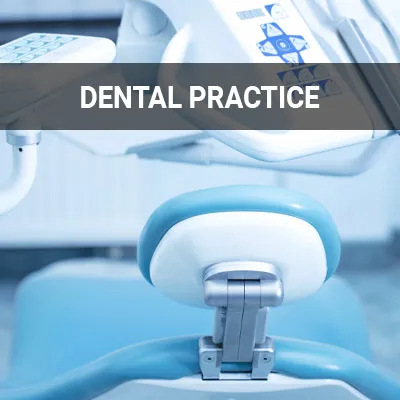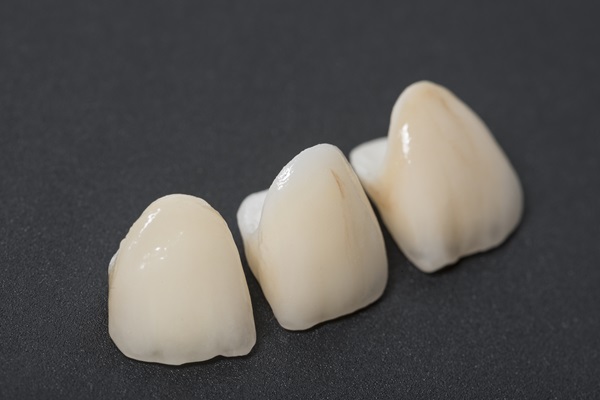Routine Dental Procedures Pasco, WA
Routine dental procedures are crucial to maintaining your overall health. They may be able to prevent any damage to your gums and teeth. You should see a dentist for routine dental procedures at least twice a year.
Routine dental procedures are available at Hansen Family Dental in Pasco and the surrounding area. We may be able to help you establish and maintain a dental care routine. Call us today at (509) 302-2880 to learn more and schedule an appointment.
Dental Check-up
Most routine dental visits involve basic teeth cleanings. During these visits, the dental hygienist uses various metal and ultrasonic tools to scrape off any plaque and tartar buildup on the patient's teeth and gum line. The hygienist will spend time working on one tooth at a time and may even floss between teeth. During this time, a patient wears a plastic or paper cloth over the chest. The patient may also wear eye shields.
Once the hygienist has finished the cleaning, the dentist will do a thorough exam. During this exam, the dentist looks for any pockets or gaps between the patient's teeth and gums. Occasionally, patients may get X-rays after a basic cleaning to identify any difficult-to-see or developing problems.
“The hygienist will spend time working on one tooth at a time and may even floss between teeth.”
Deep Cleaning
Deep cleanings, also known as scaling and root planing, go one step further by addressing anything below the gumline. This procedure has the potential to treat gum disease. When not properly removed, the bacteria in plaque can inflame your gums and cause your gums to pull away from your teeth.
Consequently, the gums may form "pockets" that trap more plaque. This is dangerous because it could lead to bone and tooth loss. Deep cleaning is effective during the early stages of gum disease when the structures below the gum line have not yet been damaged. If the condition is more advanced, then more intensive treatments may be necessary.
“Deep cleanings, also known as scaling and root planing, go one step further by addressing what is below the gumline.”
Fluoride Treatments
Fluoride is a natural tooth-supporting mineral that strengthens teeth, helps prevent cavities, and fights harmful bacteria. It protects gums and tooth enamel. Professional fluoride treatments provide patients with concentrated solutions that are much stronger than over-the-counter solutions.
The American Dental Association recommends that patients receive professional fluoride treatments every three, six, or 12 months, depending on the patient's oral health. Certain groups may be at increased risk for cavities and require more frequent fluoride treatments. These include those who do not seek regular, recommended professional dental care, use drugs or alcohol frequently, have poor oral hygiene, have a poor diet, or have weak enamel.
“Professional fluoride treatments provide patients with concentrated solutions that are much stronger than over-the-counter solutions.”
Check out what others are saying about our dental services on Google: Routine Dental Procedures in Pasco, WA
Dental Sealants & Basic Teeth Whitening
Dental sealants work to prevent tooth decay, usually on the back teeth (or the premolars and molars). When a dentist administers dental sealants, they paint a thin, plastic coating (the sealant) on the chewing surfaces of a patient's teeth. The sealant then bonds into the teeth's depressions and grooves to protect the enamel. While brushing and flossing can clean the surface areas of the teeth, they are often insufficient in removing food and plaque from more vulnerable areas, like the nooks and crannies. Sealants work to close these areas off, making them especially valuable for those who already have or are susceptible to tooth decay. Additionally, adults without tooth decay or those who have fillings may benefit.
Those looking to improve the appearance of their teeth may want to consider basic teeth whitening. Though there are many teeth whitening products available over-the-counter, the most effective options are provided at the dentist's office. These products are medical-grade, meaning they are more concentrated and can achieve better results. In-office whitening can achieve results eight times greater than whitening toothpaste. Generally speaking, this procedure is best suited for patients who have healthy teeth and gums and no fillings. However, our team may be able to help patients determine their best options even if they do not meet these criteria.
“Sealants work to close these areas off, making them especially valuable for those who already have or are susceptible to tooth decay.”
Questions Answered on This Page
Q. What happens during a dental check-up?
Q. What happens during a deep teeth cleaning?
Q. What do dental sealants do?
Q. Can dental bonding improve the look and function of my teeth?
People Also Ask
Q. Why might I need a dental crown?
Q. Why is preventative care important? How can it save you money?
Q. What should patients do if they have sensitive teeth?
Q. Am I at high risk for developing oral cancer?
Dental Bonding
Practitioners use dental bonding to restore or improve a patient's smile. The dentist applies a tooth-colored resin material to the patient's tooth. This material is hardened by a special light that causes it to "bond" to the teeth. Dental bonding can enhance the smile and improve tooth function. It tends to be easier and more affordable than most other cosmetic dental procedures.
Some of the circumstances in which a dentist may employ dental bonding include:
- Repairing chipped, cracked, or decayed teeth
- Protect tooth root that has been exposed as a result of receding gums
- Lessen the appearance of discoloration on teeth
- Close spaces between teeth or make teeth appear longer
- Change the shape of teeth to make them more aesthetically pleasing
This is not an exhaustive list of uses for dental bonding. Speaking with a dental professional will help you determine if bonding is the best way to treat your dental issue.
“Dental bonding can enhance the smile and improve tooth function.”
Frequently Asked Questions
Q. Will I experience pain after a deep teeth cleaning?
A. Pain may persist for one or two days following a deep cleaning, along with general teeth sensitivity. Gums may bleed and become swollen and tender. Our team will provide you with a treatment plan to manage the discomfort.
Q. How can I maintain my dental hygiene routine at home?
A. Oral hygiene calls for more than regular dental visits and brushing your teeth. It is important to keep a close eye on your health. This involves conducting regular oral self-examinations and updating your dentist on any relevant information. You should floss and rinse daily and eat a balanced diet. Avoid tobacco use, which increases the risk of various cancers, gum disease, bad breath, tooth discoloration, and more.
Q. What happens if I get too much fluoride?
A. Too much fluoride may negatively affect the teeth and bones. They may cause issues with bone homeostasis, staining and pitting on teeth, and white specks on mature teeth. Our team works closely with our patients to prevent this from happening.
Q. Can children get dental sealants?
A. Yes. Dental sealants may help protect your children's teeth against cavities, which are common among children and teenagers. If left untreated, they may cause problems with eating, speaking, and learning, along with pain and infection.
Q. How long will dental bonding last?
A. The answer to this varies based on the patient's oral hygiene routine and how much bonding was done. However, most patients find that their dental bonding material lasts from three to 10 years before needing a touch-up or repair.
Dental Terminology
Call Us Today
Keeping up with your routine dental treatments may prevent any serious issues before they happen. We at Hansen Family Dental may be able to help. Call us today at 509-302-2880 to learn more and schedule an appointment.
Helpful Related Links
- American Dental Association (ADA). Glossary of Dental Clinical Terms. 2024
- American Academy of Cosmetic Dentistry (AACD). Home Page. 2024
- WebMD. WebMD’s Oral Care Guide. 2024
- Hansen Family Dental was established in 2007.
- We accept the following payment methods: American Express, Cash, Check, Discover, MasterCard, and Visa
- We serve patients from the following counties: Franklin County, Benton County, Walla Walla County and Yakima County
- We serve patients from the following cities: Pasco, Kennewick, Richland, Prosser, Walla Walla, Grandview, Sunnyside, Finley, Eltopia and Connell
- National Provider Identifier Database (1184856999). View NPI Registry Information
- Norton Safe Web. View Details
- Trend Micro Site Safety Center. View Details
About our business and website security
Back to top of Routine Dental Procedures











